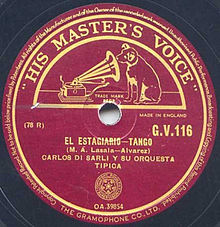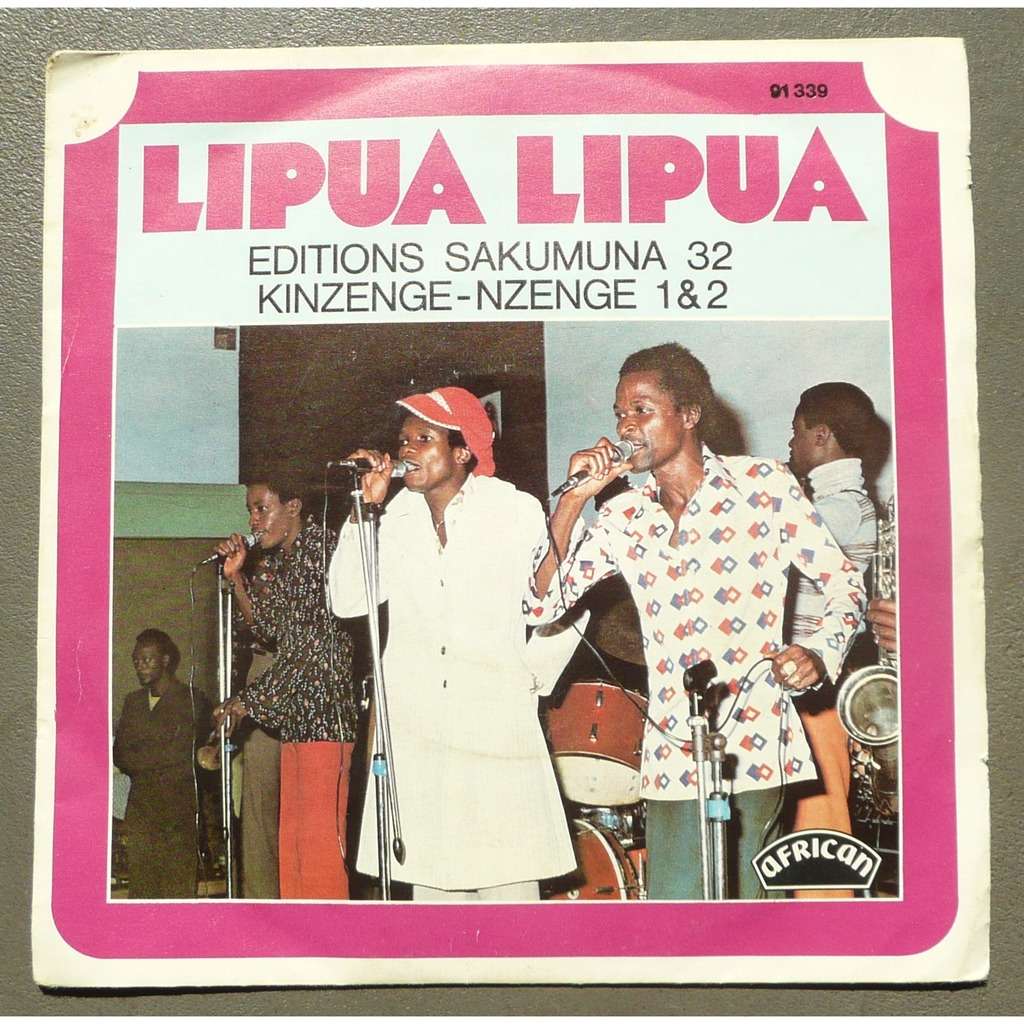I have a friend whose father collects and sells records. As in, vinyl. This he does by mail, as an auction. No internet, no phone calls, no email. It’s not a good living, but it’s an interesting one, and occasionally through family connections I end up hearing some lovely tunes. This month, it was a gorgeous track by Orchestre Lipua Lipua called “Fuga Fuga.”
It’s Rumba, which is a Congolese music style influenced by Afro-Cuban music – apparently through the arrival in the region of a series of Afro-cuban Son records called “the G.V. Series” put out by the branch of EMI called “H.M.V.” (“his master’s voice” – ouch)

Those sounds led to a guitar-heavy, polyrhythmic style of Congolese Rumba, which is how many people identify this 1970s track, again from Orchestre Lipua Lipua and called “Fuga Fuga.” It’s on YouTube here:
[youtube]http://youtu.be/wPcx5bmH1SQ[/youtube]
and for sale on iTunes, however, the iTunes album appears to be licensed to Sonodisc, and I wonder if any of the royalties go to the musicians? Well, I read Alistair M. Johnston’s fascinating history of Sonodisc, fwiw:
“The attitude of the label was very much like that seen in the “Colonie Belge” genre of Congolese paintings which showed the superior whites treating the Africans like wayward children, humiliating and punishing them… This brutal attitude even permeates the music where the 360 series was concerned. A fragile and rare treasure of the world’s music was bungled, mishandled and tossed off by the French publishers. Clearly they didn’t give un crotte.”
“According to Franco biographer Graeme Ewens, who told me the story, a friend of his found some Franco 45s on a barrow in a London street market and bought them all. He made a cassette of the tunes and sent it to Ewens who in turn copied the cassette and forwarded it to Franco’s manager. Next thing he knew it appeared as a Sono CD (in the same sequence) with no explanation. It’s a great album and I am glad it is in print, but it bothers me that no one made the effort to a) find the original tapes, or b) borrow the actual 45s in order to re-record and de-click them, and c) acknowledge the source, let alone d) provide some context for the listener.”
“However, this was the Sono attitude: they assumed Africans would not complain and white fans are only too grateful to hear this music at all. ”
I, a white fan, am indeed grateful to hear this track, and to pay respect to some wonderful musicians whose names I am trying to track down – interestingly YouTube comments provide some windows: perhaps the lineup for this tune is the same as this one: “Mombasa Vata dit ” le professeur”, Tedia, Kilola, Tonele, Mbudi Malanda, Samara, ” Johnny ” Pindu (le ” PI” du trio ” Mayopi ” ), Nono Nkuka, Médard Mbanza, Benazo, Nzeza, l Mongo Ley, “Aspro” Lusuama and the great Pepe Kalle.”
One of the most intense aspects of YouTube posts of old music is the way people pull together around shared experiences. The comments on many of these tracks evoke some incredible windows into history:
“Those of you who were in Gulu High School or lived around Mican, Katoli, Kasubi by this time you must know the guy called “Orach Opii Pa Lwak” he used to host discos in his court yard not far away from GHS.”
“These songs remind me so many things… Ohh memories…. the day was a Sunday around February 1977. I was in P.3 but old enough to understand. Amini’s soldiers surrounded Mbarara Police Barracks, all police men were gathered in a nearby play ground. All men who were of Acholi & Langi tribe were taken away and that was the last time they were seen. My Dad was a Police man but coming from Bushenyi, his name was not read. This occurred in every dist. of Ug. Did your Dad survive.? OH ..memories”
[youtube]http://youtu.be/lywwkfs7ZOg[/youtube]
[youtube]http://youtu.be/rRnVFFiHOcY[/youtube]
There’s nothing more to say: music, beauty, skill, global influences, colonial extraction, the horrors of war and the pleasures of childhood memories, evoked here as it so often is, by music.
